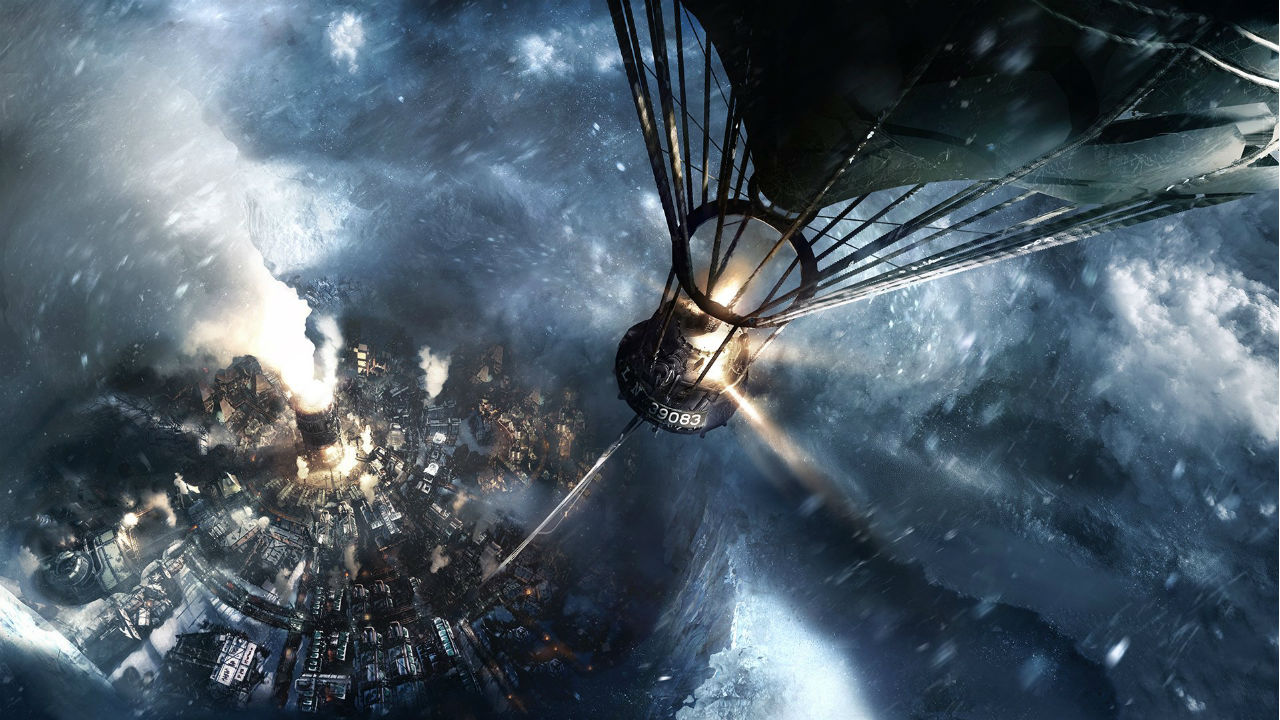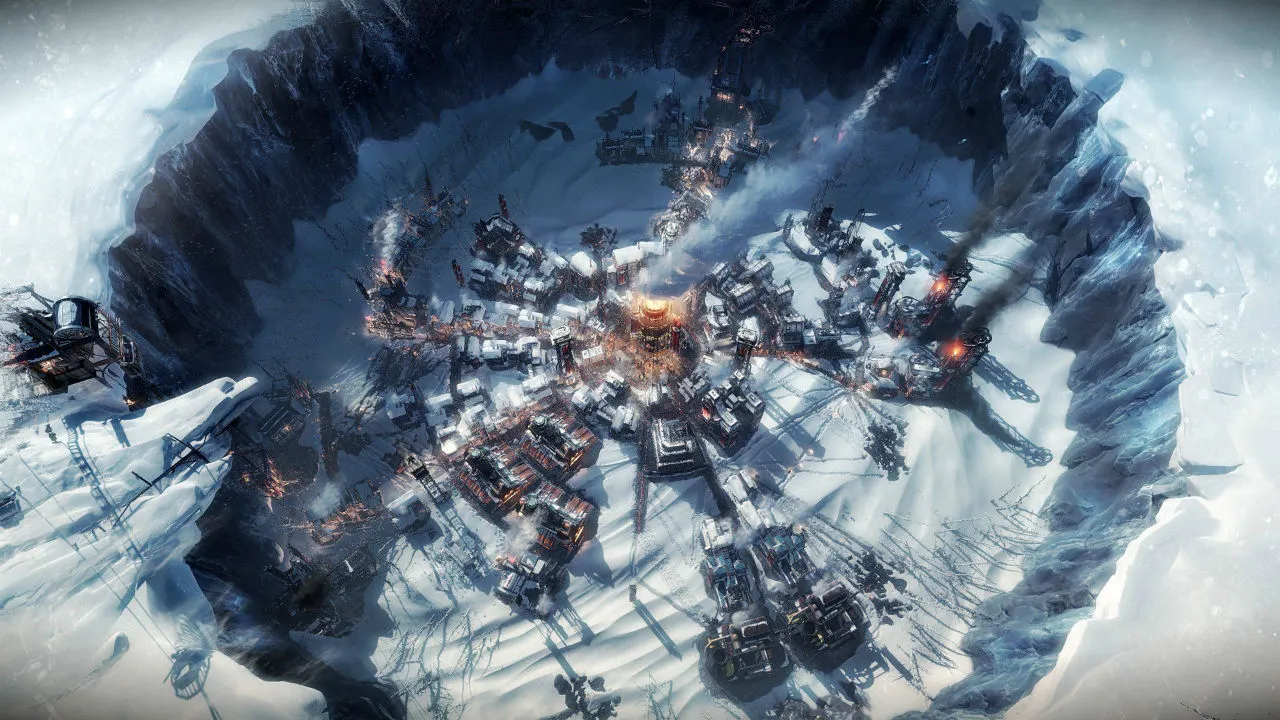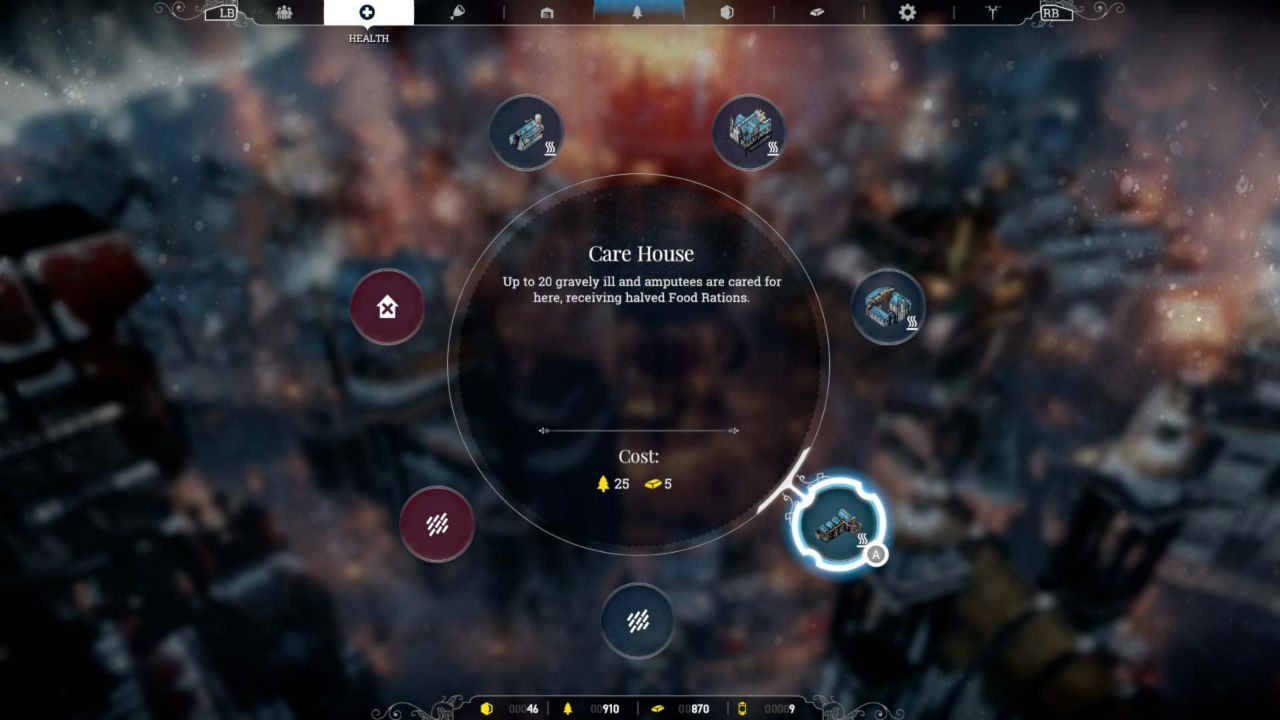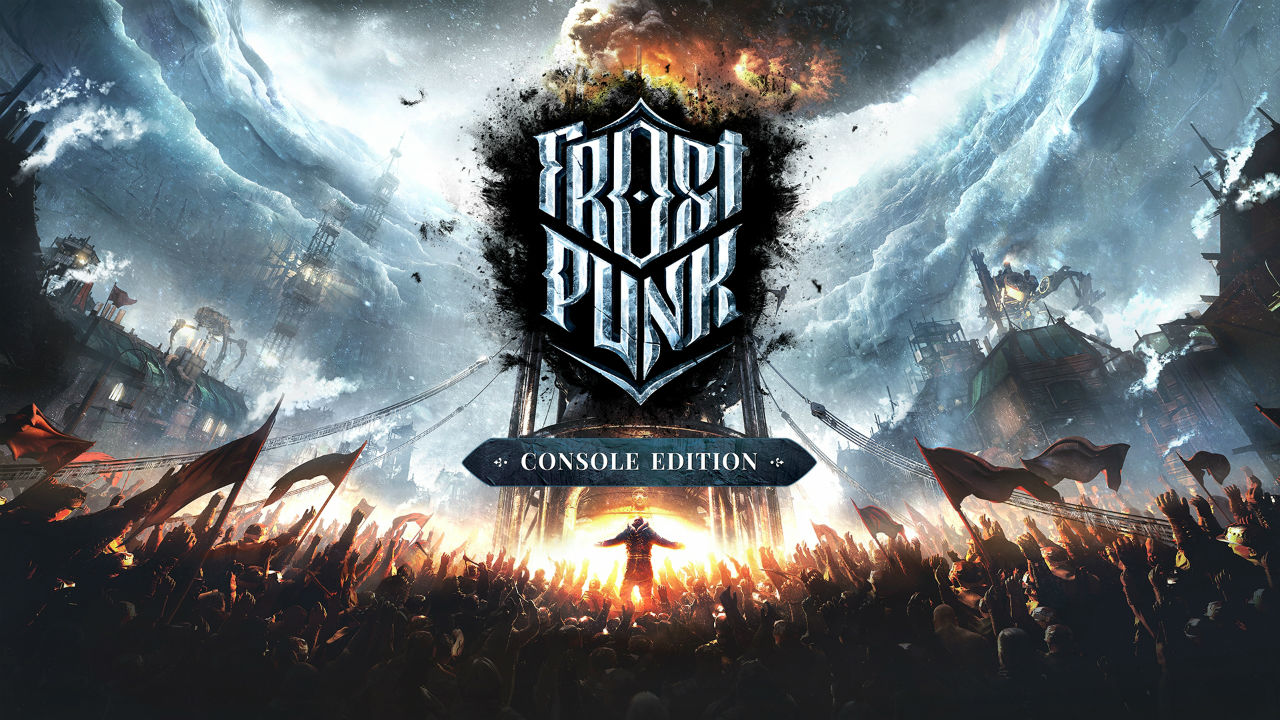Frostpunk: Console Edition Review
Table of Contents

When 11 Bit Studios launched Frostpunk on PC last year it was a gem: a brutal city-builder set in an apocalyptic alternate history where every choice had harrowing consequences. The game was a sort of spiritual successor to 11 Bit’s previous work, the depressing survival game This War of Mine, and Frostpunk proved to be a compelling mix of city micro-management laced with a bevy of difficult choices. A year and a half later 11 Bit Studios has finally ported the game to consoles, but did the game survive the process? Happily, Frostpunk: Console Edition is just as good as its PC counterpart, with an intuitive UI that makes the game feel like it was always designed with consoles in mind, and mostly rock solid performance.
The last city on Earth.
For the uninitiated, Frostpunk is set in an alternate history, taking place around the industrial revolution. The Earth has been consumed by a dramatic climate shift, with the entire planet becoming a frigid wasteland that would make Mars appear temperate. Survivors from London have ventured out north to find some sort of reprieve, and after discovering an abandoned generator within a crater they decide to call it home.
You are the leader of this settlement, and you will be doing what most city-builders task you with doing: harvest materials, construct various buildings, and try and maintain the city as best you can. The secret sauce to Frostpunk’s recipe, however, is that it turns all these usually benign task on their head. The temperature of your city has to be precisely balanced – with every passing day becoming colder and colder – to prevent illness and death among the populace. Food is scarce, resources are limited, and each day is a battle to survive the harsh new world.
To make matters worse, the people have two dispositions that need to be maintained: Hope and Discontent. The less hopeful and more upset your populace becomes then the more likely you’ll find yourself strung up and boiled to death. As the leader, you have to not only build and expand the city, but make difficult choices that can affect the overall flow of the city. Do you force children to work the mines due to most of the adults being afflicted with frostbite? Are the dead to be respected or harvested for their organs? A constantly evolving Book of Laws has the tools you need to make an existing situation less terrible, but there are always ramifications further down the road.
It’s this delicate balancing act of building, harvesting, and placating the populace that gives Frostpunk its Sisyphean edge, and there was concern that in coming to console too many concessions would have to be made to make the game playable on the weaker platforms. What menus would need to be cut, what information would be pared down or removed? Frostpunk gave players every graph, every statistic they needed to track the progress of their city and the contentment of its people, but could all of that be intuitively translated over to a couple of thumbsticks and buttons?
Don’t just call this a port.
11 Bit Studios seemed to wonder much the same, and upon firing up the console version it seems that none of the game has been sacrificed in the move over to console. The opening menu will be familiar to long-time fans, and the only notable difference is the controller resting in your hand. Once you load up the game up and start building your Last City, the alterations that were made become notably apparent.
First thing players will notice is the new UI. Damn near all of it has been uplifted in some way to better work with a console controller. The base menus function much the same, but getting to them is a whole different affair. Instead of having icons in the UI to access the different tools available, there are two radial menus assigned to the shoulder triggers: the command navigator on the left trigger, and the express navigator on the right.
The command navigator is broken down into sub-menus that are cycled between with the shoulder buttons, but within the radial menus themselves are all the things you’d expect from the main game: the Book of Laws, research, building; nothing has been cut. Intuitively, the most important options have a face button assigned to them, so popping in and out of the command navigator is quick and easy. If I need to build tents for my populace I would be a simple three buttons away, with little downtown wasted to figuring out where everything was. Within the building menus alone I could easily build the structures I needed, construct roads, and even destroy them: all without having to dig through a maze of sub-menus.
The express menu allows players to highlight anything – and I mean anything – and pop up a radial menu with context sensitive prompts. I needed to staff my coal thumper with workers, and by using the express menu I was able to do so with no chaff. 11 Bit seemed aware of how cumbersome menu driven games could be when played with a controller in hand, and in assigning everything to two easy to use radial menus they actually found a way to remove most of the resistance. Players can still select the object they want with the X/A Button to bring up a dedicated menu for that object – just like the PC version – but being able to quickly build and remove, implement laws, and start new research projects kept the game from slowing down.
Which speaking of slowing down, 11 Bit has also smartly assigned the directional buttons to time management. Left and right will slow or speed up time respectively, up will set time back to normal, and down will pause time altogether. In a city-builder where every single second can be the difference between a warm night or a cold one having time management a swift thumb strike away feels inspired. I know, I’m talking about a simple function here, but it’s easy to get caught up in menus when playing a city-builder, and the last thing I need is having to dig through more menus – even with the novel radial menus in place here – just to pause the flow of time. I can easily make critical choices, or speed through a day with minimal effort.
And that seems to have been the design mantra for Frostpunk: Console Edition: make each action take as few steps as possible to execute. Make each menu easy to reach and utilize. Ensure that the players on console are just as empowered as their PC brethren when it comes to accessing information and controlling the flow of the game. In this mission 11 Bit has succeeded flawlessly: had I not known better I’d have told you that Frostpunk had been designed with consoles in mind from the start.
Some graphical sacrifices had to be made, but all the content is here.
Of course, there is a caveat to all of this: city-builders can become processing hogs once a city starts bustling with life. Frostpunk may be a smaller city-builder when compared to peers like Anno, but it’s no less willing to devour your computational power. To make the game run as smoothly as possible 11 Bit has made a few cuts. Textures are slightly lower than the PC version, shadows have taken a small hit, and anti-aliasing seems to be non-existent.
By no means is this a bad looking port; as a matter of fact, the game still looks great, even on a base PS4. Snow still gives way when workers ploy through it, and the lighting and volumetrics are still sharp. But there are the little details that you catch in the corner of your eye that betray this version as a console port. I’m sure there are more alterations I’m not adept at detecting, but all said the graphical downgrade will appear minor to those not actively counting pixels. The important bit is this: I seldom noticed any dips in performance while playing, even when my city was pushing the outer limits of the available space. The framerate can crater whenever the generator is shutdown, and while the game is auto-saving, but these situations are not frequent. Whatever cuts were made that I can’t see don’t matter near as much when compared to the performance I do notice.
On the flip-side, Frostpunk Console Edition comes with all the DLC released thus far. Endless mode, additional scenarios: all of it is here. 11 Bit left nothing out of this port. Considering you can get Frostpunk: Console Edition on Amazon for $35 USD, that’s damn near a steal. The base game is still $30 on Steam, and while the bundle with all the DLC can sometimes be found on sale for $25, the console version feels priced just right, unlike some ports I’ve recently reviewed. Console players are getting the same incredible game as their PC counterparts with all of it’s additions included. It’s a decision and a price point I honestly can’t knock. It’s a personal thing, but ports that are priced above their weight-class annoy me, especially if performance is questionable at best, and I’m glad to see 11 Bit decided to keep Frostpunk: Console Edition priced as close to the PC version as possible. The fact it also runs fantastic on a console makes me a supremely happy.
The same great game, with no compromises.
Frostpunk: Console Edition is a fantastic port: it overhauled its UI and controls intelligently, it runs well, and its priced fairly. At times it doesn’t even feel like a port, but like a version of the game that was developed alongside the PC version. Nothing about the brutal Frostpunk experience has been lost in the translation, and for those who heard all the praise last year but lacked the requisite PC they can now sit down and play 11 Bit’s masterpiece on the platform of their choice (well, barring the Switch it sounds like: sorry Nintendo fans). If you have yet to play Frostpunk and enjoy city-builders you should absolutely give the console edition a look. It’s a worthy port of a phenomenal game, and I hope to see more games brought over from PC given this sort of love and attention in the future.
ncG1vNJzZmiZpKmupLfOn6uhnZaWu6O72GeaqKVfp7K3tcSwqmieoqTAtbzUp6Jmm5%2BjwLC4xGacnaGknryvedGeraKdp2Q%3D



